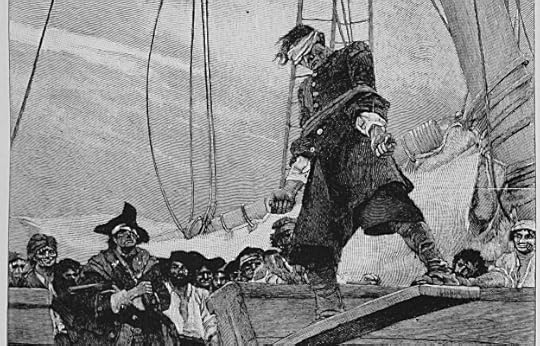Should the Army be more like the Navy in holding its commanders accountable?

By Joe Doty
Best Defense department of command
responsibility
How do we explain the huge disparity between the large number
of Navy Commanders getting fired (more
than 30 in 2011) and the relatively small number of Army Commanders getting
fired?
It seems like every month or so another Navy Skipper or XO
is being relieved. Last year two Army
brigade commanders were removed from command in Germany, a battalion commander
was relieved in Afghanistan, and a few years back an Army Division Commander
who commanded in Baghdad was "asked" to retire due to command climate
issues. Also, a Cav Squadron commander
was relieved in the mid-1990s. But this clearly is not the norm in the
Army.
Is there really a significant difference between the two
services and the way they conduct business/command/leadership?
We all know it is part of the culture in the Navy that "if
the ship runs aground, it is the Captain's responsibility"; or "the Captain is
always responsible, even if he/she isn't."
Clearly these are not just words in the Navy -- they back it up. Many skippers have been relieved of command
(USS John L. Hall, 2010; USS Hartford 2009; USS San Francisco, 2005; aircraft
carrier USS John F. Kennedy, 2004) for collisions or groundings. Being relieved under these circumstances is
the norm in the Navy, part of the professional ethic. Navy ship and submarine commanders have an expectation they will be (and should be)
relieved of their duties when something "really bad" occurs on their
watch. This expectation is different
than a performance or behavior standard.
In the Army, there is an old saying that "the commander is
responsible for everything the unit does and/or fails to do." But are they accountable? Historically, the Army does not relieve commanders at
the 05/06 level at even close to the rate the Navy does, and maybe it shouldn't. Or
maybe the Navy is too quick to relieve ship commanders -- especially "unlucky"
ones. However, for the Army to maintain
a healthy professional ethic, commanders need to embrace the spirit of this quote -- as their command responsibility. And, the senior leadership in the Army should
consider how they hold commanders accountable
for what their units and soldiers do and/or fail to do.
There are a few common and unwritten themes on this topic:
1. A commander can
delegate authority, but not responsibility. Authority refers to "who is in charge" while responsibility refers to
"who is accountable."
2. A commander is
responsible but very often not in
control.
3. Commanders have a
responsibility to ensure their subordinates are trained and can operate
independently based on the commander's intent.
4. Commanders have a
responsibility to set a command climate wherein subordinates will act ethically
in the absence of leaders.
Thoughts?
Joe
Doty, PhD, is a retired Army officer currently working as a leadership and
ethics consultant. For more on this topic please see his
article on "Command responsibility and accountability"
in the Jan/Feb 2012 issue of Military
Review.
Thomas E. Ricks's Blog
- Thomas E. Ricks's profile
- 436 followers



